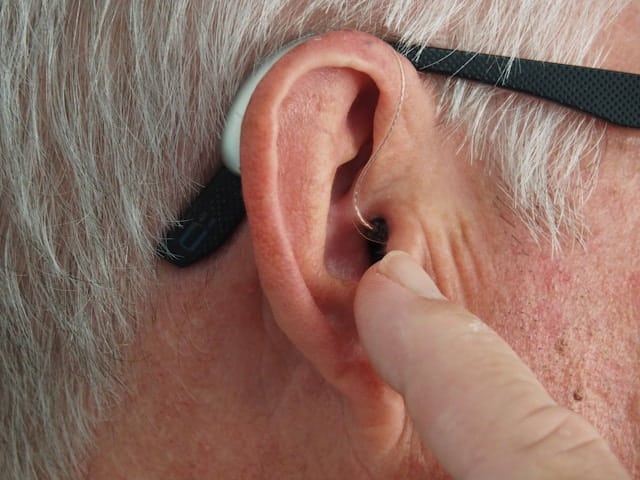How Is AI Contributing to the Customization of Hearing Aids?

Hearing loss is an issue that affects countless individuals worldwide. Traditional hearing aids have been the primary solution for these individuals, offering them a chance to regain their ability to hear the world around them. However, these devices often come with limitations. Thanks to advancements in Artificial Intelligence (AI), the landscape is shifting. AI is now playing a crucial role in personalizing hearing aids, enhancing the user’s experience and improving their overall quality of health.
The Evolution of Hearing Aids: from Analog to Digital
The role of hearing aids in our society has changed dramatically over time. Initially, these devices were rather basic, amplifying sound to assist those with hearing loss. However, they lacked the ability to differentiate between various types of noise, often leading to confusion and frustration for the user.
A découvrir également : What Innovations Are Making Electric Vehicle Charging Faster and More Accessible?
The introduction of digital hearing aids marked a significant leap forward. These devices not only amplified sound but also offered the ability to fine-tune the settings based on the user’s personal needs and preferences. Users could now customize their devices to better filter out background noise, focus on certain sounds, or tailor the settings to their specific environments.
However, even with these advancements, limitations remained. Users often had to manually adjust their settings, resulting in a less than ideal user experience. This is where AI technology comes in, further revolutionizing the world of hearing aids.
A voir aussi : How Can Blockchain Technology Enhance Intellectual Property Rights Management?
The Role of AI in Customizing Hearing Aids
AI is a game-changer in the hearing aid industry. It is a technology that learns from user behavior and personalizes the hearing aid settings to better suit the user’s needs. AI-based learning allows for adaptive, dynamic adjustments that keep pace with the user’s changing environments and listening preferences.
For instance, a user might frequently adjust their hearing aid settings when in a busy restaurant to better hear their companions amidst the ambient noise. An AI-based hearing aid would learn from this behavior and automatically make similar adjustments in similar situations, effectively eliminating the need for manual adjustments. This leads to a more seamless, personalized listening experience for the user.
Advanced Features of AI-based Hearing Aids
AI-based hearing aids are equipped with various advanced features that contribute to a highly personalized user experience. One such feature is speech enhancement. This technology allows the hearing aid to focus on human speech, making conversations clearer and easier to follow in noisy environments.
Another key feature is the ability to recognize and filter out specific types of noise. For instance, the device may learn to reduce the sound of wind when the user is outdoors or minimize background chatter in a bustling café.
AI-based hearing aids can also adapt to different listening environments. Whether the user is at home, in an office, or at a crowded event, the device can adjust accordingly, ensuring optimal audio clarity at all times.
The Impact of AI on Health and Well-being
While the primary goal of hearing aids is to improve the user’s ability to hear, AI technology takes this one step further. AI-enabled hearing aids can monitor the user’s overall health, including their physical activity levels and even their mental health.
Incorporating health monitoring features into hearing aids is particularly beneficial for older users, who are more likely to experience hearing loss. These features can track their physical activity, monitor their heart rate, or even detect falls. Some devices can also track indicators of cognitive health, providing valuable insights and early warnings of potential health issues.
The Future of AI and Hearing Aids
AI’s contribution to the customization of hearing aids is just the beginning. As technology continues to evolve, we can expect to see even more advancements in this area. Future AI-based devices may be able to predict the user’s needs based on their daily routines, further enhancing the level of personalization.
AI technology also opens the door to the integration of hearing aids with other smart devices. This could lead to a fully interconnected ecosystem that not only improves the user’s ability to hear, but also enhances their overall quality of life. From personalized sound settings to sophisticated health monitoring features, the future of hearing aids is bright, thanks to the power of AI.
It’s safe to say that, while traditional hearing aids have served a crucial role in our society, AI is ushering in a new era of personalization and convenience. The potential of AI in enhancing the quality of life for individuals with hearing loss is immense, and we’re only just beginning to scratch the surface.
Machine Learning and Real-Time Adaptation in Hearing Aids
Machine learning, a subfield of artificial intelligence, plays a significant role in the evolution of hearing aid technology. Machine learning algorithms allow a hearing aid to learn from the user’s listening behavior, identifying patterns and making real-time adjustments to maximize the user’s audio experience.
These real-time adjustments are critical in different listening environments. For instance, a hearing aid might need to minimize background noise during a busy social event, while a quiet conversation at home may require fine tuning of certain frequencies. Thanks to machine learning, hearing aids can adapt to these changes on the spot, without requiring the user to manually adjust their aid settings.
In addition to this, machine learning enables AI-based hearing aids to anticipate the user’s needs. For instance, if the user frequently adjusts their hearing aids in specific environments or situations, the device can learn from these patterns and automatically make similar adjustments in the future. This feature not only enhances the sound quality but also simplifies the user experience by reducing the need for manual adjustments.
Machine learning also adds a layer of personalization to the hearing aid fitting process. Traditionally, audiologists would fine-tune hearing aids based on the user’s feedback and their professional insight. With machine learning, however, hearing aids can adjust themselves to the unique characteristics of the user’s ear canal, resulting in a more accurate and comfortable fit.
Integration of AI-based Hearing Aids with Other Smart Devices
Another exciting development in hearing aid technology is the integration of AI-based hearing aids with other smart devices. This integration could lead to an interconnected ecosystem that enhances not only the user’s hearing experience but also their overall quality of life.
For instance, a user’s hearing aid could connect with their smartphone, allowing them to control their aid settings directly from their phone. This adds a layer of convenience, as users can adjust their hearing aids without having to remove them.
Moreover, the integration with smart devices opens up possibilities for health tracking. Users could monitor their physical activity, heart rate, or even sleep patterns through their hearing aids. This feature could be particularly beneficial for older adults, who often use hearing aids and are more likely to have health conditions that require monitoring.
In addition, artificial intelligence could enable hearing aids to communicate with other smart devices in the user’s environment, such as home automation systems. This could allow users to control various aspects of their home environment, like lighting or temperature, using just their hearing aids.
Conclusion
The use of artificial intelligence in hearing aid manufacturing has ushered in a new era of personalization and convenience for hearing aid users. From machine learning algorithms that adapt to the user’s listening behavior in real time, to the integration of hearing aids with other smart devices, AI is redefining the user experience in profound ways.
The future of hearing aids looks promising, with artificial intelligence paving the way for more sophisticated features and capabilities. As AI continues to evolve, we can expect to see even greater advancements in hearing aid technology. The potential of AI in enhancing the quality of life for individuals with hearing loss is immense, and we are only just beginning to explore its possibilities.
Looking ahead, it’s clear that AI has a vital role to play in the hearing aid industry. As we continue to develop more advanced and personalized hearing aids, we will undoubtedly see an improvement in not only the user’s ability to hear but also in their overall health and well-being. With artificial intelligence, the future of hearing aids is indeed bright.
